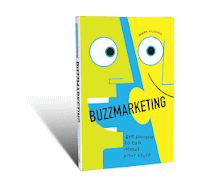
Friday, September 24, 2010
Ideas don't change the world!

Monday, August 16, 2010
Is Your Enterprise Growing Old?

Friday, August 6, 2010
Which future is your staff seeing?

Monday, July 12, 2010
Is your leadership Scalable?

Thursday, July 1, 2010
Let us call a spade a brand

Tuesday, June 22, 2010
RECOVERING FROM A 'KAITASTROPHE'

- Tender an unreserved apology and mean it.
- Ignore the chatter - people will criticise you even if you are doing the right thing.
- Rest assured that human beings are fickle and that you can regain your position by consistent brilliant performance. Read a striking account of how you can instantly shore up your brand equity.
- Work harder than ever before to surpass every positive record you have ever set.
- Accept that some people will never forgive or forget - learn to live with such people.
Tuesday, June 15, 2010
Who's in? Who's out?
Tuesday, June 8, 2010
The Diabolus Code

- wanting your own way
- wanting everything for yourself
- wanting to appear important
If you have the diabolus code, you tend to think that your enterprise is the centre of the universe - everything revolves around you and your objectives. You want to be number one or nothing else; you want 100% of market share.
In reality, you don't need to strive to be number one, you are the only one (see Red Ocean Strategy); you dont need market share, you've got your own market all to yourself.
The Diabolus Code casts other enterprises as competitors to be conquered - in reality, they are co-travellers to be helped.
Monday, June 7, 2010
Define your rules of engagement.

Wednesday, May 5, 2010
Lose Weight

- You cannot write your 'about us' in one sentence (if you wanted/needed to).
- You've struck out 'no' from your dictionary; every client is welcome.
Urgent work always interrupts important work.
You only remember your mission, vision at the quaterly/annual retreat.
Hebrews teaches that the wise thing to do when running a race is to strip yourself of every weight; makes absolute sense if you ask me. I mean just look at sprinters, they wear next to nothing. You simply don't carry excess weight if your intention is to move swiftly.
Start cutting out the excess baggage today!
Wednesday, April 28, 2010
Sell Convinience
Monday, April 26, 2010
Enterprise Productivity Model
Thursday, April 22, 2010
Red Ocean Strategy

Wednesday, April 14, 2010
Thinking inside the Book
Thursday, April 8, 2010
Making a kill VS Squandering goodwill
Wednesday, March 31, 2010
If you wanna be great

Tuesday, March 30, 2010
PPP 101

- A viable opportunity has to provide consumers a preferable (better, faster or cheaper) alternative.
- Every failing of government is an opportunity; if they can't provide power, health, security, you can.
Friday, March 26, 2010
Make room - here comes the gift.
Tuesday, March 23, 2010
Carbon Heartprint

Friday, March 19, 2010
Reason is overrated!

Built To Last.

- Be a solution (Matt 5:13-14)
- Follow perfection, You must do better than 'fulfill all righteouness' (Matt 5:20)
- You are what you think - so think right (Matt 5:27-28)
- Don't rebrand problems - deal with them (Matt 5:29-30)
- Make your word your bond (Matt 5:33-36)
- Don't invest in getting even, get ahead instead (Matt 5:38-41)
- Let your bottomline be people (Matt 6:19-22)
- Don't follow the crowd (Matt 7:13-14)
Build your enterprise on these principles and you have an eternal warranty.
Monday, March 15, 2010
hsirebbig
Monday, March 8, 2010
The Devil is Grey!
Friday, March 5, 2010
Is your Strategy yours?

LEADERSHIP!
Monday, March 1, 2010
NEEDED! BUZZY BUDDIES

...and when He had stepped into the boat, the man who had been controlled by unclean spirits kept begging Him that he might be with Him. But Jesus refused to permit him, but said to him, go home to your own (family and relatives and friends) and bring back word to them how much the Lord has done for you, and (how He has) had sympathy for you and mercy on you. And he departed and began to publicly proclaim in decapolis (the region of the ten cities) how much Jesus had done for him, and all the people were astonished and marveled.
Tuesday, February 23, 2010
Walk on water
How about we use the title of this blog as the new metaphor for "thinking outside the box"? If there ever was one person who lived and thought completely outside the box, it definitely has to be Jesus the Christ. Here are a few instances;
- Headed for Gennesaret but stranded on the shore of the sea , he didn't wait for the next boat out of the harbour ... he walked on water!
- He always had unpopular opinions... he advocated following the path of greatest resistance.
- He stood logic on its head ... The first shall be the last; if you want to be great, you have to be a servant.
- Its plausible to die for a good man... he chose to die for wicked men.
Monday, February 22, 2010
The most valuable currency
 The most valuable currency is vision! It is a universal currency, a legal tender anywhere in the universe. It's value is infinity - you can exchange it for as many of any other currencies as you want. With the 'V', you actually can name your own price.
The most valuable currency is vision! It is a universal currency, a legal tender anywhere in the universe. It's value is infinity - you can exchange it for as many of any other currencies as you want. With the 'V', you actually can name your own price.
3 things vision must be
 Now I don't strictly mean that you must put it on some fancy plaque and place it prominently in the lobby of your headquarters, I mean that in whatever form you it is written it must carry the weight of a contract; to write a vision means to put down a comittment. When Habbakuk was told to write the vision, he was told to put it on Tablets - just like the ones that the ten commandments had been written upon.
Now I don't strictly mean that you must put it on some fancy plaque and place it prominently in the lobby of your headquarters, I mean that in whatever form you it is written it must carry the weight of a contract; to write a vision means to put down a comittment. When Habbakuk was told to write the vision, he was told to put it on Tablets - just like the ones that the ten commandments had been written upon. There is absolutely no room for ambiguity in writing a vision. In capturing our vision in words we must be extremely cautious to ensure that the words that we use clearly describe what it is. Typically, effective vision statements are not wordy, they are instead punchy and succint. Here are a few to learn from;
- John Zacharias: I am the voice of voice of one crying in the wilderness
- Jesus the Christ: I am the way, the truth and the life
Vision must be compelling (that he may run that readeth it)
If your vision is unable to compel you to move, then it is either not your vision or you have not written it yet (given it the weight of a contract/commandment). True vision has the intrinsic ability to move the bearer. Think of anyone that you consider to be a visionary leader and you will instantly recognize that there is that thing about them acting like a 'driven' person.whether they are super athletes or political leaders or business gurus or spiritual leaders, every visionary leader lives a driven life. Again another sampling of the drive of visionary leaders.
- Churchhill: Never, Never, Never give up
- Jesus the Christ: I must be about my father's business
- Paul of Tarsus: woe is unto me if I preach not the gospel
- Jesse Owens: A lifetime of training for just ten seconds
Friday, February 19, 2010
enVISION STATEMENT

- Let the weakling say 'I am strong'
- Ye are the light of the world
- Neither shall thy name anymore be called Abram; but thy name shall be Abraham, for a father of many nations have I made thee.
The weakling is not to say "I aspire to be strong", he/she is to affirm their vision of the future The concept is that you call the things that be not, as though they are.
So if I were to help Chevron and AT&T rephrase their vision statements, it will sound something like this;
Chevron
the global energy company most admired for its people, partnership and performance.
AT&T
the most admired and valuable company in the world.
These sure beat those aspirational stuff anyday. Don't just aspire, affirm!
Tuesday, February 16, 2010
Do you know this man?
 Ever heard of Trey Hardee? Well, I thought not. Google him up and you'll find out that he is the current world decathlon champion... read world's 'greatest' athlete.
Ever heard of Trey Hardee? Well, I thought not. Google him up and you'll find out that he is the current world decathlon champion... read world's 'greatest' athlete. ou probably consider him the world's greatest athlete.
ou probably consider him the world's greatest athlete. Thursday, February 11, 2010
Saving for the sunny day
The 'Dawn'fall of a man...
Friday, February 5, 2010
The Two Economic Mindsets
Wednesday, February 3, 2010
Drink Responsibly!
Trying to find a way to rebrand a bribe is as contradictory as the title of this blog. There's just no way to drink responsibly - it's irresponsible to drink.
Friday, January 29, 2010
Knee Jerk Management
- You can not clearly state your Mission in one sentence.
- The last time you looked at your plan for the year was when you wrote it down (if you wrote it that is)
- The reason your company is on the internet is that everyone else is (a symptom of the reason you do most other things).
Knee Jerk mangement condemns you to reacting to the urgent when you ought to be pursuing the important. Quit being a knee-jerk manager.
Being CEO

- It's not about you; the organization, company wasn't created 'ços you are CEO, you are CEO 'cos the organization exists. If the organization isn't better off with you as CEO - quit!
- Character shows; eventually, character does show up. Character for me is being able to live beyond the human instinct. Under pressure, Mr President and the FEC have prooved to be just another group of sit-tights.
Conflict is Valuable; difficult situations throw up scenarios we never thought about. If we seize the opportunities, we can build better frameworks for our lives/organizations.
Thursday, January 28, 2010
BREAKING NEWS! I just acquired the Oxygen Franchise.
 Purpose is like spiritual DNA - no two people have the same purpose. Realising that you have a unique purpose is discovering that you just inherited a secret recipe to solve a global problem. Building a business out of that recipe is entirely up to you. It will be a shame to just let that recipe go to waste and leave the world deprived of the solution that it needs.
Purpose is like spiritual DNA - no two people have the same purpose. Realising that you have a unique purpose is discovering that you just inherited a secret recipe to solve a global problem. Building a business out of that recipe is entirely up to you. It will be a shame to just let that recipe go to waste and leave the world deprived of the solution that it needs. 




